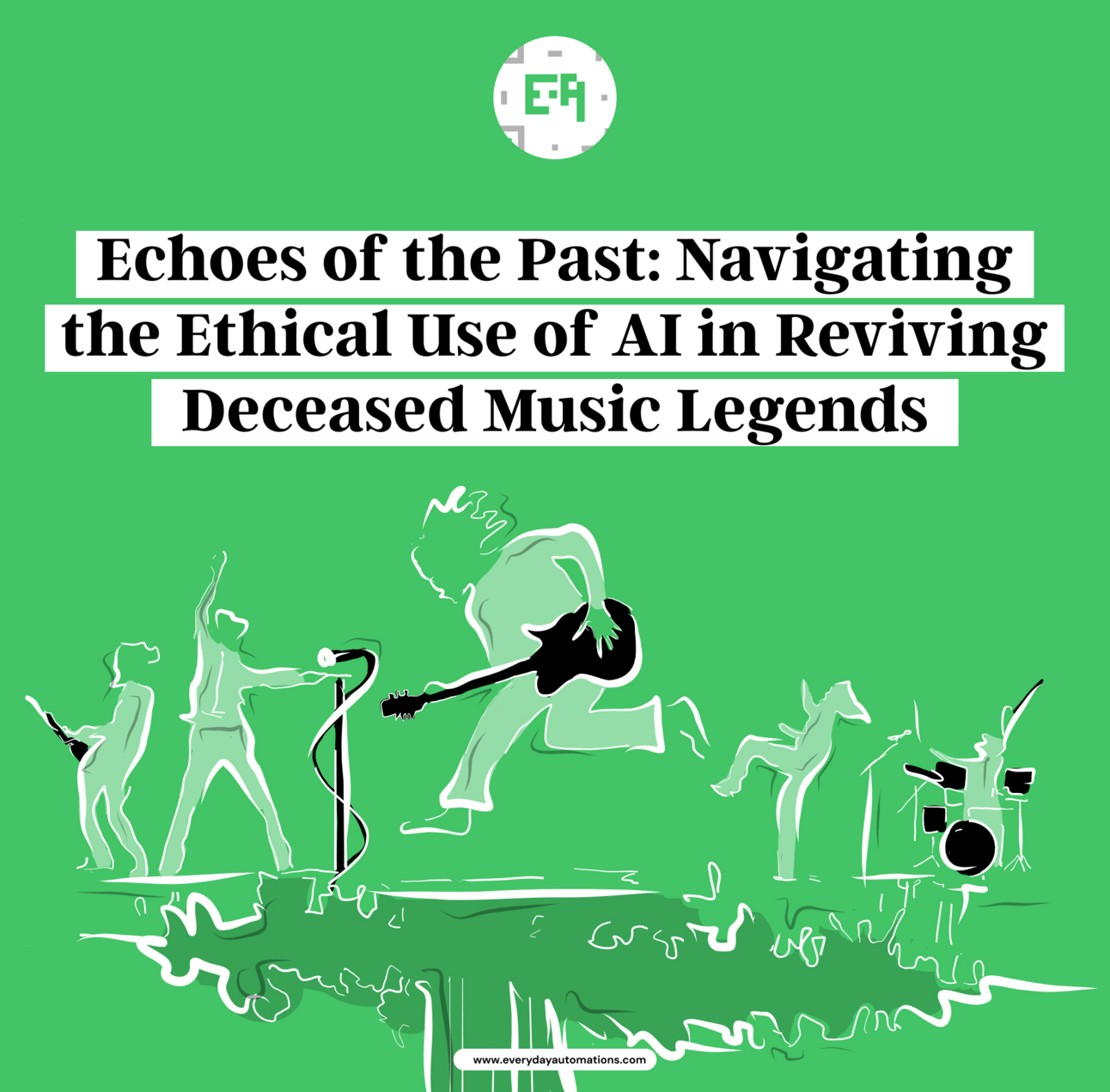- Everyday Automations
- Posts
- Echoes of the Past: Navigating the Ethical Use of AI in Reviving Deceased Music Legends
Echoes of the Past: Navigating the Ethical Use of AI in Reviving Deceased Music Legends
We examine the legal, ethical, and creative challenges involved in preserving the integrity of legendary musicians in the digital age.

In recent years, advancements in artificial intelligence (AI) have opened up new possibilities in the realm of music and entertainment, particularly in resurrecting the performances of deceased artists. This development has profound implications for estate managers, who must navigate the ethical, legal, and creative aspects of leveraging AI in this manner.
Reviving the Legends through AI: Ethical and Creative Considerations
The use of AI to recreate performances of late musicians and artists is not just a technological feat but also an ethical conundrum. On one hand, it offers fans a chance to experience the magic of their favorite artists, potentially in new and innovative ways. On the other hand, there are concerns about the authenticity of such performances and whether they align with the artist’s original vision and legacy.
Estate managers play a crucial role in this process. They are responsible for preserving the integrity and legacy of the artist. When it comes to AI recreations, they must consider whether such endeavors respect the artist's original intent and how they might be received by both devoted fans and the general public.
Navigating Legal Complexities
Legally, the use of AI to bring back deceased artists is a complex issue. Copyright laws, which protect the original works of artists, come into play. Estate managers must ensure that any AI-generated performance or new creation does not infringe upon existing copyrights or intellectual property rights.
Moreover, there is the issue of the artist's image rights. Using an artist’s likeness, especially in a posthumous context, requires careful legal consideration and, often, clearances from the estate or family members.
Technological Breakthroughs and Artistic Integrity
Technologically, AI has reached a point where it can generate highly realistic audio and visual content. This includes synthesizing voices, mimicking styles, and even creating entire performances. However, balancing technological capability with artistic integrity is crucial. Estate managers must decide how far to push these boundaries without compromising the artist's original style and essence.
Impact on the Music Industry and Fan Engagement
For the music industry, AI offers new avenues for revenue generation and fan engagement. Posthumous releases and performances can attract wide attention and offer unique experiences to new and old fans alike. However, this also raises questions about over-commercialization and the potential dilution of the artist's original body of work.
A Delicate Balance
In summary, using AI to bring back deceased artists is a delicate balance of respecting the artist's legacy, navigating legal challenges, leveraging technological advancements, and maintaining artistic integrity. Estate managers have a pivotal role in this process, ensuring that any AI-driven projects align with the artist's vision and ethos, while also considering the potential impact on the music industry and fan communities.
As technology continues to evolve, the possibilities for posthumous performances and creations will expand, but so will the responsibilities of those managing the legacies of departed artists. The key lies in thoughtful, respectful, and ethical approaches that honor the past while embracing the future.

Reply